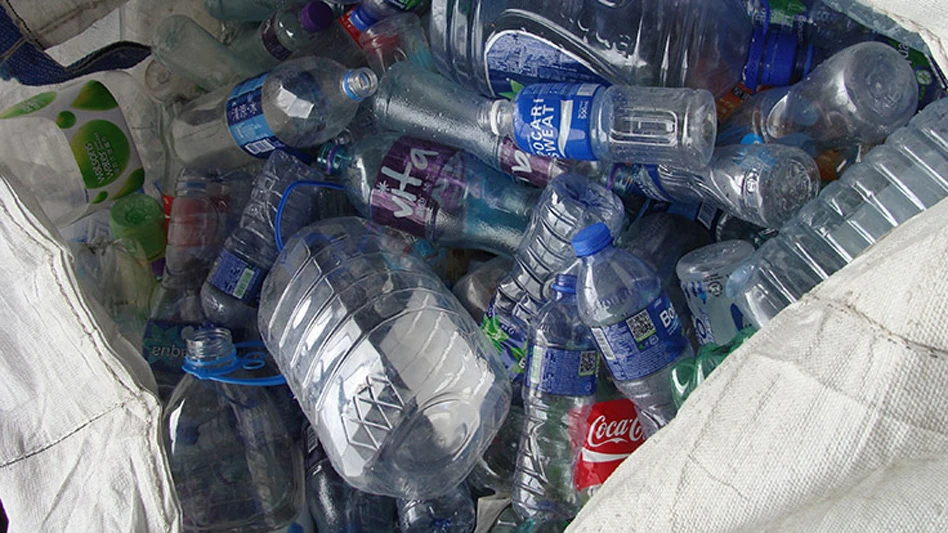
Recycling Today archives
The message to policymakers from the Brussels-based European Recycling Industries Confederation (EuRIC) is that urgent actions are necessary to protect the European recycling industry from unfair competition linked to massive imports of plastics potentially falsely labelled as recycled.
In North America, as in Europe, there is a trend toward recycled-content plastic being imported from Asia. (EuRIC, which represents recyclers on that continent, does not comment on the North American situation.)
“A robust traceability system, verified by [an] independent third-party, is needed to ensure that plastics labelled as recycled are actually recycled under equivalent conditions to those set in the EU," EuRIC says of these imports.
Recycled-content targets for plastic packaging have been instrumental the past few years in driving the demand for recycled plastics in Europe, the organization says.
The objectives have sent a "powerful signal" to recycling companies to invest in new plants capable of meeting the domestic demand for high-quality recycled plastics used in packaging.
Since last year, however, EuRIC cites an “uncontrolled increase of imports of cheap plastics, both virgin and plastics labelled as recycled” that it says is severely damaging plastics recycling in Europe.
Most such plastics are being imported from Asia and, EuRIC says that even if they genuinely contain recycled content, are not produced from plastic scrap generated within the EU.
As a result of the imports, the price of recycled-content resins within Europe dropped significantly, by up to 50 percent in 2023, with market signals showing no sign of recovery in 2024, according to the organization.
The situation now involves European plastics recycling companies having invested “hundreds of millions of euros to meet circularity goals” that are now forced to operate well below their production capacity, EuRIC says.
A three-page EuRIC position paper on the topic can be downloaded here.
Latest from Recycling Today
- BMW Group, Encory launch 'direct recycling’ of batteries
- Loom Carbon, RTI International partner to scale textile recycling technology
- Goodwill Industries of West Michigan, American Glass Mosaics partner to divert glass from landfill
- CARI forms federal advocacy partnership
- Monthly packaging papers shipments down in November
- STEEL Act aims to enhance trade enforcement to prevent dumping of steel in the US
- San Francisco schools introduce compostable lunch trays
- Aduro graduates from Shell GameChanger program





